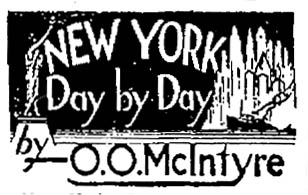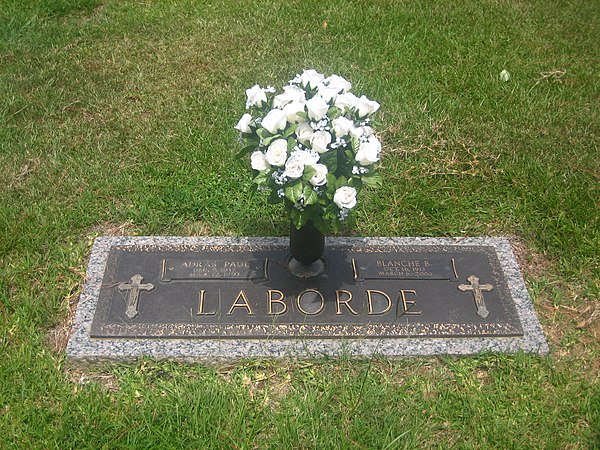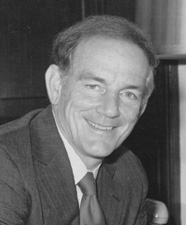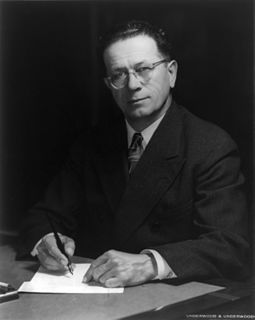Early life and career
LaBorde was born to Enos LaBorde, Sr. (1886–1962), and the former Lily Bordelon (1891–1955) in Bordelonville in Avoyelles Parish south of Alexandria. He graduated at an early age from Bordelonville High School. [2] As a young man, he worked as a radio operator on a ship. [3] During long voyages at sea, he developed his interest in serious reading. Largely self-educated, LaBorde read encyclopedias and serious works of nonfiction, always learning and eager to improve his employment prospects.

Bordelonville is a census-designated place (CDP) in Avoyelles Parish, Louisiana, United States. As of the 2010 census, it had a population of 525.
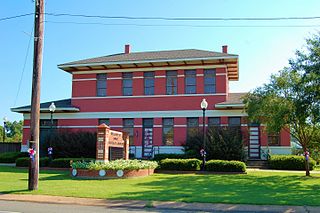
Avoyelles is a parish located in central eastern Louisiana near the Mississippi and Atchafalaya rivers. As of the 2010 census, the population was 42,073. The parish seat is Marksville. The parish was created in 1807, with the name deriving from the French name for the historic Avoyel people, one of the local Indian tribes at the time of European encounter.
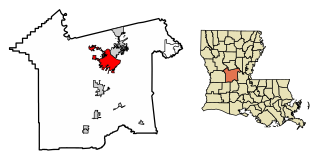
Alexandria is the ninth-largest city in the state of Louisiana and is the parish seat of Rapides Parish, Louisiana, United States. It lies on the south bank of the Red River in almost the exact geographic center of the state. It is the principal city of the Alexandria metropolitan area which encompasses all of Rapides and Grant parishes. Its neighboring city is Pineville. In 2010, the population was 47,723, an increase of 3 percent from the 2000 census.
He married Blanch Bordelon, also of Bordelonville, and they started a family. Later, while living in New Orleans, LaBorde did a newscast in French for radio station WWL. He also wrote a training manual on radio language for pilots, which was used by the military during World War II. The manual was called Roger, Wilco. [1]

New Orleans is a consolidated city-parish located along the Mississippi River in the southeastern region of the U.S. state of Louisiana. With an estimated population of 393,292 in 2017, it is the most populous city in Louisiana. A major port, New Orleans is considered an economic and commercial hub for the broader Gulf Coast region of the United States.

French is a Romance language of the Indo-European family. It descended from the Vulgar Latin of the Roman Empire, as did all Romance languages. French evolved from Gallo-Romance, the spoken Latin in Gaul, and more specifically in Northern Gaul. Its closest relatives are the other langues d'oïl—languages historically spoken in northern France and in southern Belgium, which French (Francien) has largely supplanted. French was also influenced by native Celtic languages of Northern Roman Gaul like Gallia Belgica and by the (Germanic) Frankish language of the post-Roman Frankish invaders. Today, owing to France's past overseas expansion, there are numerous French-based creole languages, most notably Haitian Creole. A French-speaking person or nation may be referred to as Francophone in both English and French.
WWL is a U.S. radio station in New Orleans, Louisiana, broadcasting at 870 kHz, and owned by Entercom Communications. 870 is a clear channel frequency on which WWL reaches large parts of the Gulf Coast in the daytime, and much of the Central and Southern United States at night. In April 2006, it began to simulcast on WWL-FM 105.3 MHz allowing the station's listeners to choose between AM and FM. The station has a talk radio format with sports talk at night. WWL is a long-time affiliate of the CBS Radio Network. The station's studios are located at the 400 Poydras Tower in Downtown New Orleans and the transmitter site is in Estelle, Louisiana.
During World War II, LaBorde served as a lieutenant in the U.S. Army Air Corps. Married and with two children, he was assigned to posts in the United States. Blanche and their two children (a daughter and son) accompanied him to his stations: San Antonio, Texas, Arkansas City, Kansas, and Abilene in Taylor County, Texas. A second son, their third child, was born after the war, when they had returned to Louisiana and settled in Alexandria. [1]

San Antonio, officially the City of San Antonio, is the seventh-most populous city in the United States, and the second-most populous city in both Texas and the Southern United States, with more than 1.5 million residents. Founded as a Spanish mission and colonial outpost in 1718, the city became the first chartered civil settlement in present-day Texas in 1731. The area was still part of the Spanish Empire, and later of the Mexican Republic. Today it is the state's oldest municipality.

Arkansas City is a city in Cowley County, Kansas, United States, situated at the confluence of the Arkansas and Walnut rivers in the southwestern part of the county. As of the 2010 census, the city population was 12,415.

Kansas is a U.S. state in the Midwestern United States. Its capital is Topeka and its largest city is Wichita, with its most populated county being Johnson County. Kansas is bordered by Nebraska on the north; Missouri on the east; Oklahoma on the south; and Colorado on the west. Kansas is named after the Kansa Native American tribe, which inhabited the area. The tribe's name is often said to mean "people of the (south) wind" although this was probably not the term's original meaning. For thousands of years, what is now Kansas was home to numerous and diverse Native American tribes. Tribes in the eastern part of the state generally lived in villages along the river valleys. Tribes in the western part of the state were semi-nomadic and hunted large herds of bison.
Journalism career: Alexandria Daily Town Talk
LaBorde started at The Alexandria Daily Town Talk in 1945. [1] George W. Shannon had preceded him as a staffer and later advanced to be the editor of the Shreveport Journal. [4] LaBorde learned the business from the ground floor. In 1950, he was named managing editor. He held that position for twenty-seven years. [1]
George Washington Shannon was a conservative journalist from, principally, Shreveport, Louisiana.
The Shreveport Journal is a former American newspaper published originally by H. P. Benton in Shreveport and Bossier City in northwestern Louisiana.
In 1977, LaBorde was promoted to "executive editor", a title that he held through his last year of full-time employment. Unlike many print journalists who move from one newspaper to another seeking upward mobility, LaBorde stayed with The Town Talk in a career that spanned parts of six decades. [1]
His staff joked that he had no formal education but "the school of hard knocks". He had attended Tyler Commercial College in Tyler, Texas, which for a period of time claimed to be the largest business training school in the United States. The college offered instruction in bookkeeping, shorthand, telegraphy, business administration, and finance. [1] [5]
A columnist's dream: colorful politicians, Louisiana-style
LaBorde witnessed the state's transformation of rivalry between Longism and anti-Longism. Beginning in the 1960s, and the slow rise of serious Republican competition to the traditional Democratic majority. He saw the "good government" types battle the "old guard," and sometimes found little difference between the antagonists. He did not endorse candidates for office on the editorial page. (The newspaper has since abandoned this policy of neutrality.) He wrote extensively on leading figures of the region, state and nation.
His subjects included the following, in alphabetical order: Ernest S. Clements, Jimmie Davis, William J. "Bill" Dodd, Allen J. Ellender, Jimmy Fitzmorris, Camille Gravel, Jack P.F. Gremillion, Francis Grevemberg, William J. Guste, J. Bennett Johnston, Jr., Sam H. Jones, John Hainkel, Paul Hardy, Shelby M. Jackson, Robert F. Kennon, Raymond Laborde, Dudley J. LeBlanc, Blanche Long, Earl Kemp Long, George S. Long, Gillis William Long, the legacy of Huey P. Long, Jr., Russell B. Long, Speedy O. Long, Charlton Lyons, John McKeithen, Wade O. Martin, Jr., Louis J. Michot, deLesseps Story Morrison, Sr., James A. Noe, Mary Evelyn Parker, Otto Passman, Dave L. Pearce, William M. Rainach, Edward G. "Ned" Randolph, Jr., Charles E. Roemer, III, John G. Schwegmann, John W. "Jock" Scott, Nauman Scott, John K. Snyder, David C. Treen, many others, including his perhaps most demanding subject, Edwin Edwards. [1]
While LaBorde liked to report on campaigns and elections, he also focused on the intricate workings of government and the bureaucracy. He believed that government could be a force for good in society if the right people, with the proper motivation, were elected.
He had a great interest in city charters, "good government" in general, and sportsmen's issues. Sometimes, LaBorde ventured into national politics, offering unsolicited advice in his columns for presidents Dwight Eisenhower, John F. Kennedy, Lyndon B. Johnson, Richard M. Nixon, Gerald R. Ford, Jimmy Carter, Ronald Reagan, and the first George H.W. Bush. He was irate over the Watergate scandal of the Nixon administration in 1973 and 1974, but mostly addressed state or local matters. [1]
LaBorde adjusted his newsroom to modern demands. He knew that the paper had to attract subscribers to stay afloat. In the summer of 1973, computers were introduced at The Town Talk to improve efficiency and to increase the volume and quality of news stories.
Staff development
LaBorde demanded integrity, accuracy, originality, and speed from his reporters and editors. When his near legendary but quiet temper flared, he could, without a trace of humor, stare down the culprit over the rim of his glasses. Many of his reporters advanced in the fields of journalism and public relations. [1]
He developed his staff and provided opportunities of women and minorities. Reporter Elizabeth Roberts Martin of Norman, Oklahoma, a 1966 graduate of Louisiana State University, was promoted as the first woman to hold editing positions in the Town Talk newsroom. LaBorde hired Cleo Joffrion, an Alexandria native, as the first African-American reporter at the paper. He promoted Cecil Williams, a native of the Kentucky coal-mining area, from assistant managing editor to business editor. Williams won numerous awards. [1] [6]
LaBorde sent the young reporter Leonard Sanderson, Jr., to Baton Rouge in 1974 to cover the legislature. Later Sanderson moved to Washington, DC, where he set up his own consulting firm. [1] Jeff Cowart, an Alexandria native and LSU graduate who began as a reporter under LaBorde, in 1988 was appointed as first press secretary to Governor Buddy Roemer. Cowart later established a management consulting firm, Media National, in suburban Washington, DC. [7]
Three Town Talk staffers, Larry Collins, Betty Luman, and Chet Hilburn, moved on to the larger Houston Chronicle . Jack Harp of Ruston came to the newspaper at the age of 22 in 1972 to work on the "wire desk." The technology changed so much over the following three decades that the term "wire desk" was replaced by "Metro desk." Rebecca Jo Tubb Mulkey (1949–1999), originally from Magnolia, Arkansas, wrote feature stories before moving to the Torrance Daily Breeze in Torrance, California. William Chaze went on to become an Associated Press (AP) editor, foreign news editor for U.S. News & World Report and editor-in-chief of the Journal of Defense and Diplomacy . All owed a part of their success to LaBorde's demanding tutelage. [1]
LaBorde's tenure at the newspaper coincided with the management of publisher Joe D. Smith, Jr., a native of Grant Parish, and his first wife, Jane Wilson Smith. Her father had owned The Town Talk. The Smiths sold the paper to Central Newspapers, Inc., of Indianapolis, which later sold it to the Virginia-based Gannett. [1]
Active professionally, LaBorde was the charter president of the Central Louisiana Press Club and held membership in the United Press Newspaper Association of Louisiana. Fluent in French, LaBorde promoted his cultural heritage through the Council for the Development of French in Louisiana, better known by the acronym CODOFIL. [1]
Environmental issues
LaBorde was a staunch conservationist. He worked to publicize issues and advance conservation in the region. He urged Governor Edwards to promote the state purchase of the Saline-Spring Bayou Wildlife Management Area in Avoyelles Parish. He lobbied in his columns for removal of oilfield pollution from the Little River. He urged Edwards to acquire the land encompassing Spring Bayou.
He was a former president and state director of the Rapides Wildlife Association. For a while he wrote the column "Nibbles and Potshots" on fishing and hunting for The Town Talk sports section. [1]
The poem "Elegy for a Bayou," by his grandson the poet Christopher Cessac, is dedicated to him. [8]
Political anecdotes
In 1968, after Governor John McKeithen failed to gain the Democratic vice-presidential nomination at the convention in Chicago, which nominated Hubert Humphrey to run against Richard M. Nixon and George Wallace, he privately threatened to resign and turn over his office to Lieutenant Governor Taddy Aycock. McKeithen's executive secretary summoned LaBorde and publisher Joe D. Smith, Jr., to Baton Rouge to talk McKeithen out of a hastily considered resignation.
In a 1974 interview, LaBorde said that he first thought the threat of resignation was "a joke". He and Smith spent a half day with McKeithen and insisted that he complete his term. LaBorde advised McKeithen that he became too defensive and overreacted to media reports. The two urged him to develop a thicker skin and stand up to his critics. McKeithen completed his second term, but struggled with many controversies and political setbacks. [9]
Governor Edwin Edwards sometimes stopped at LaBorde's home when he passed through Alexandria. Once he was accompanied by an entourage of state troopers with sirens sounding. Neighbors thought that there had been a tragedy. Mrs. LaBorde was embarrassed and asked Edwards not to visit again unless he came without the entourage.
Edwards gave the principal speech at LaBorde's retirement dinner from the Town Talk. After official retirement, LaBorde continued "The Talk of the Town" column twice a week. He did not live to see Edwards complete his fourth term as governor. LaBorde's daughter, Joyce Cessac, said that LaBorde would have never tolerated Edwards' crimes, but that her father had thought that Edwards was an exceptional leader so long as good economic times prevailed in Louisiana. [1]
Though LaBorde required his reporters to be objective regarding their subjects, he personally had a soft spot for another south Louisiana politician, his fellow "Cajun" Senator Allen Ellender from Houma in Terrebonne Parish, with whom he liked to swap "fish stories." It was said that with their dark-rimmed glasses, LaBorde and Ellender bore a physical resemblance, though Ellender was more than twenty years LaBorde's senior. Ellender served in the U.S. Senate for thirty-six years. LaBorde was greatly saddened by the sudden death of Ellender in the 1972 reelection campaign. [1]
Personal life and family
The LaBordes were strong members of St. Frances Cabrini Catholic Church in Alexandria. LaBorde became friends with Alexandria Bishop Charles Pasquale Greco (1894–1987), and they were active in the Knights of Columbus. [11] LaBorde was a fourth degree Knights of Columbus and held the St. Gregory distinction. [1]
Bishop Greco hosted an annual party for Town Talk staffers. The first native of Mississippi selected as a bishop in the Catholic Church, Greco wrote With God's Help, memoirs published posthumously by the Knights of Columbus. LaBorde worked on the Catholic newspaper for the bishop. When the United States Supreme Court ruled in Roe v. Wade on January 22, 1973, LaBorde strongly objected. He continued to oppose abortion for the remainder of his life. [1]
Joe Smith, LaBorde's friend and former publisher, and family members stayed after his diagnosis of terminal stomach cancer; he died two weeks later. He had been able to fulfill his desire to be active until the end of his life. [1] Adras and Blanche LaBorde are interred at Alexandria Memorial Gardens. [1]
Family
LaBorde and his wife, the former Blanche Bordelon (1913–2004), had a daughter Joyce (born 1934), and two sons, Adras Paul II (1943–1972) and Michael Anthony (born 1947). [1] Joyce LaBorde became a kindergarten teacher and married Albert Joseph Cessac (1931–2012), a native of Perry in Vermilion Parish. They had seven children, who have all married in turn: Cheri (Cessac) McBurnett and husband Mark, Stephen Cessac and wife Darsha, Kenneth Cessac and wife Laura, Denise (Cessac) Long and husband Mike, Kevin Cessac and wife Mary, Nannette (Cessac) Baucom and husband Danny, and Chris Cessac and wife Jeanne Sinclair. [12]
Adras LaBorde, II, earned a Master of Science degree in forestry from Louisiana State University in Baton Rouge; he married and had a son. He died of cancer at the age of twenty-nine. His son Adras Paul LaBorde III (born 1966), became an attorney, working in the Rowe law firm of Baton Rouge, specializing in litigation, admiralty, and maritime law. [1]


